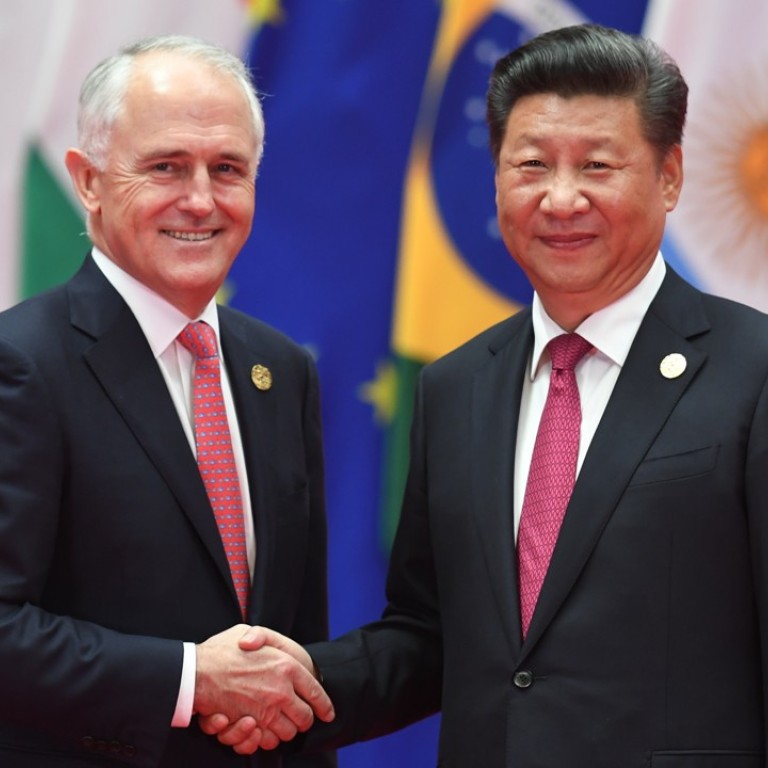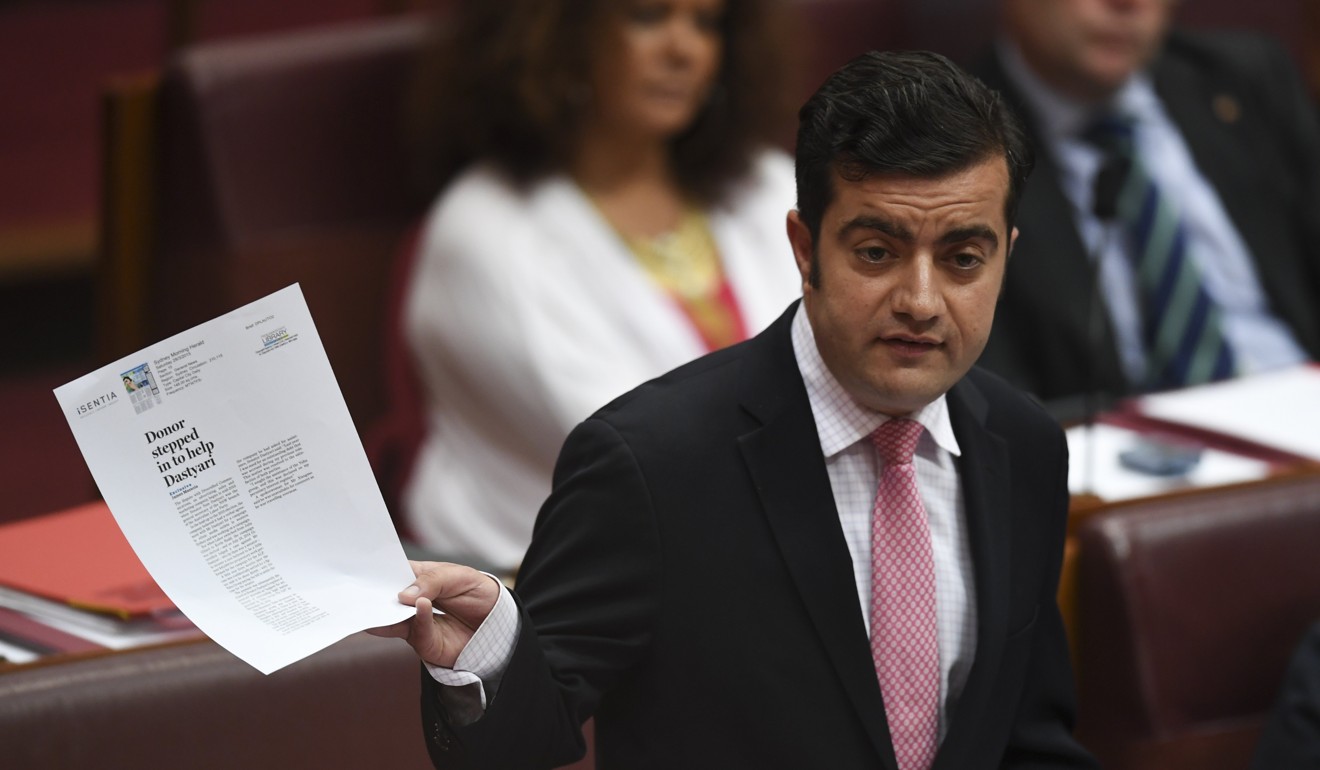
How Chinese government uses ‘front organisations’ to influence Australian society and monitor behaviour of its citizens studying there
Parliamentary submission details how the influence of pro-Beijing organisations in Australian business has been ‘supercharged’ by the rapid growth in trade and investment flows
The Chinese government uses a sophisticated network of supposedly non-political organisations to suppress criticism, cultivate relationships and exert influence over Australia’s business, academic and political worlds.
MPs investigating foreign interference have been handed evidence with unprecedented detail of the complex network of soft power used by extensions of the Chinese Communist Party in boardrooms and on university campuses across Australia.
The submission, by prominent Charles Sturt University author and ethicist Professor Clive Hamilton and Australian National University researcher Alex Joske, claims China uses its United Front Work Department to exert its influence on Australian society.
United Front’s purpose, Hamilton said, is to “mobilise sympathetic or potentially sympathetic Chinese community groups to serve the interests of the CCP” while marginalising those opposed to the party.
Its influence extends across Chinese associations on university campuses and the CSIRO.
[These associations] play a central role in the Chinese government’s efforts to monitor, control and intervene in the lives of Chinese students in Australia
Chinese Students and Scholars Associations, Hamilton says in his submission to the joint parliamentary committee on intelligence and security, was “the core of Beijing’s presence on university campuses” and an “integral component” of United Front activity in Australia, with the primary purpose of “monitoring the thoughts and behaviours of the 130,000 Chinese students on campuses across Australia”.
There are, Hamilton said, at least 37 associations currently active on Australian campuses “covering nearly all Australian universities, including all Group of Eight universities, as well as the CSIRO”.
“CSSAs play a central role in the Chinese government’s efforts to monitor, control and intervene in the lives of Chinese students in Australia and to limit academic freedom on universities,” the submission states.
While some of the associations “attempt to downplay or hide the fact that they are guided by the Chinese government”, others are more explicit. The University of Newcastle’s website states that the campus association is “supervised by the Chinese general consulate Sydney”.
Hamilton says the associations are tasked with ensuring Chinese students “remain patriotic and supportive” of Communist Party rule, but are also used to mobilise Chinese students to oppose activities on campuses that might embarrass Beijing.
“As the Chinese government’s ears and eyes on university campuses, CSSAs are likely behind many of the incidents of students and lecturers being reported to Chinese authorities for comments that run contrary to the party line,” the submission stated.

He cited a recent example where the Chinese consulate-general entered a dispute with the University of Newcastle after a lecturer showed a table that listed Taiwan and Hong Kong as separate countries.
The submission also details how the influence of pro-Beijing organisations in Australian business has been “supercharged” by the rapid growth in trade and investment flows between China and Australia.
“Many leading figures in the Australian business community now serve as megaphones for Beijing’s messaging to the Australian government and the wider public, not least in warnings about ‘damaging the relationship’ and the risks of retaliation when statements are made that Beijing does not like,” the submission states.
Many leading figures in the Australian business community now serve as megaphones for Beijing’s messaging to the Australian government
It details “a proliferation of front organisations whose purpose is to deepen personal relationships … and subtly shift the perspective [of the Australian business community]”, including the Australian-China Belt & Road Initiative, which is linked to Australia’s former trade minister Andrew Robb.
The ACBRI is partially funded by the Department of Foreign Affairs and Trade, but said in a statement that it “does not accept funding from Chinese government or Chinese companies and operates with full disclosure” to DFAT.
But in the submission Hamilton questions whether the foreign interference bill – which contains secrecy provisions which could see journalists and whistle-blowers jailed for 20 years – would actually help to combat Chinese government influence.
“It is not clear that the legislation as currently framed would capture some of the more important foreign interference operations that are being undertaken by the PRC [People’s Republic of China] in Australia, including the United Front work,” the submission states.
The bill aims to target “covert, deceptive or threatening actions by foreign actors who intend to influence Australia’s democratic or government processes or to harm Australia”.
But Hamilton said the notion of “influence” was difficult to measure, and that while “blatant” cases might be captured by the act, most forms of Chinese government influence are subtler.
He gave examples of instances which would “naturally be thought of as foreign interference operations but which may not be successfully prosecuted under the new laws”, such as a university publisher rejecting a manuscript critical of the Chinese Communist Party because it fears losing revenue from Chinese students and research collaborations with Chinese universities.
Last year publisher Allen & Unwin cancelled plans to publish Hamilton’s book about the Chinese government’s methods of asserting influence in Australia because of fears the Chinese government could sue for defamation.

